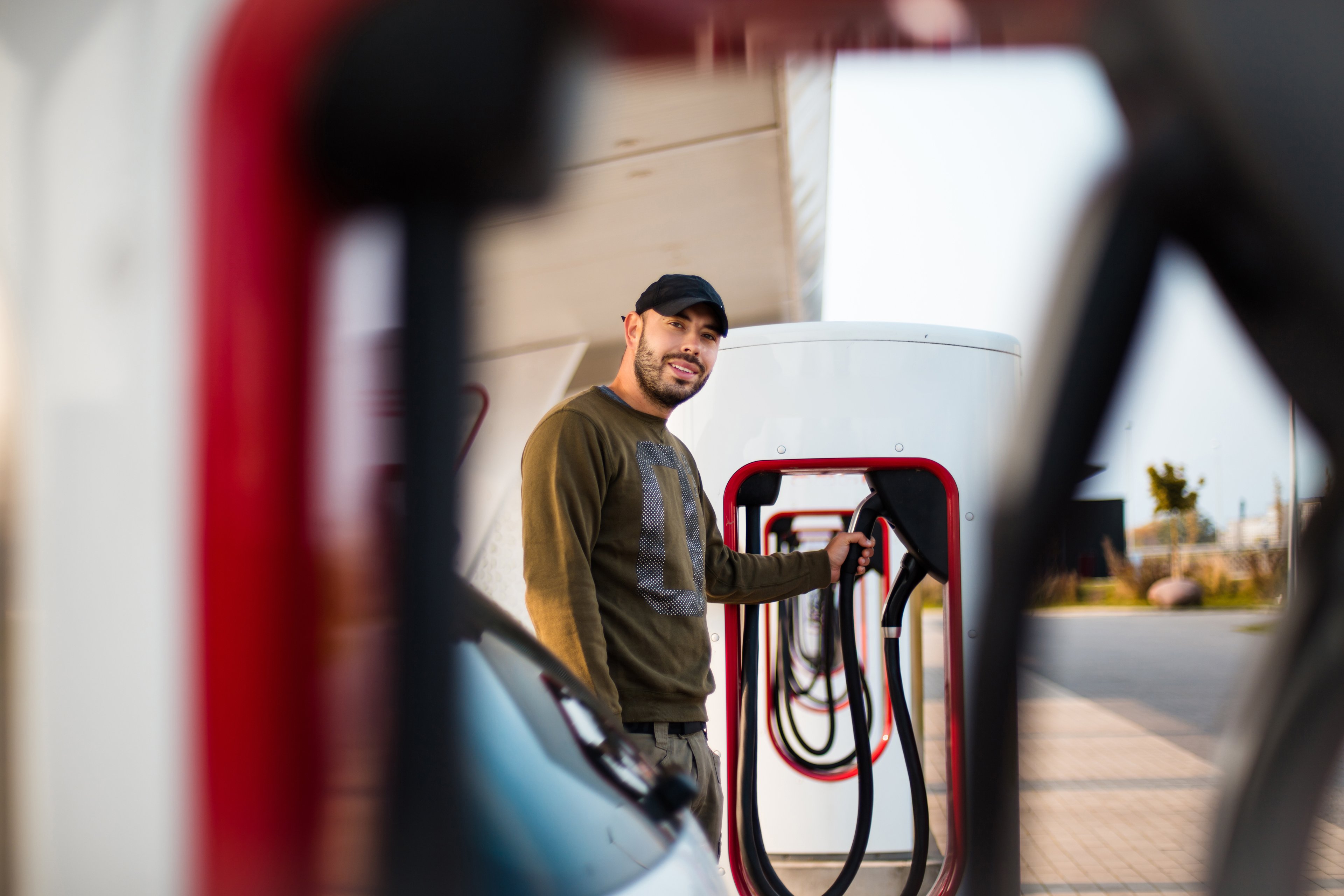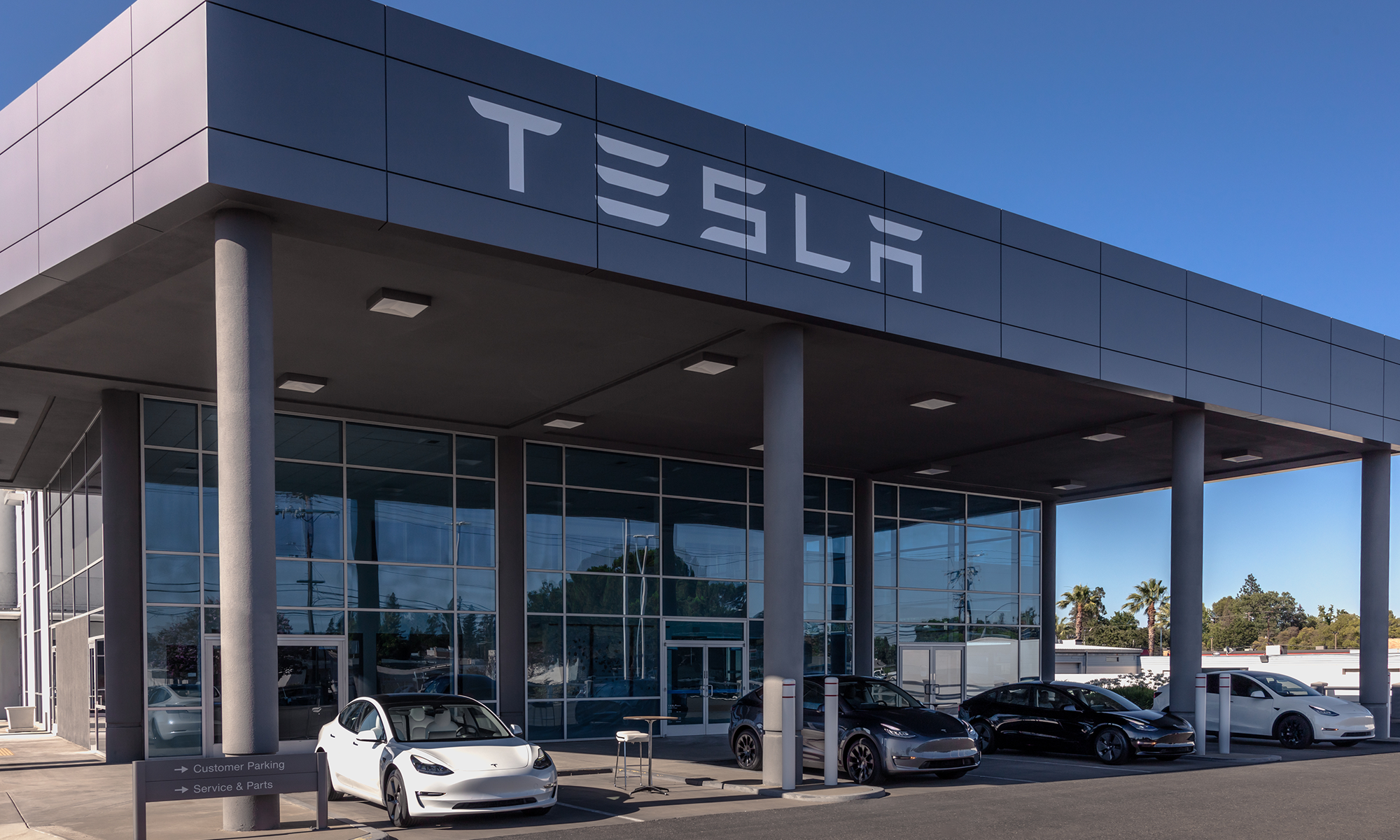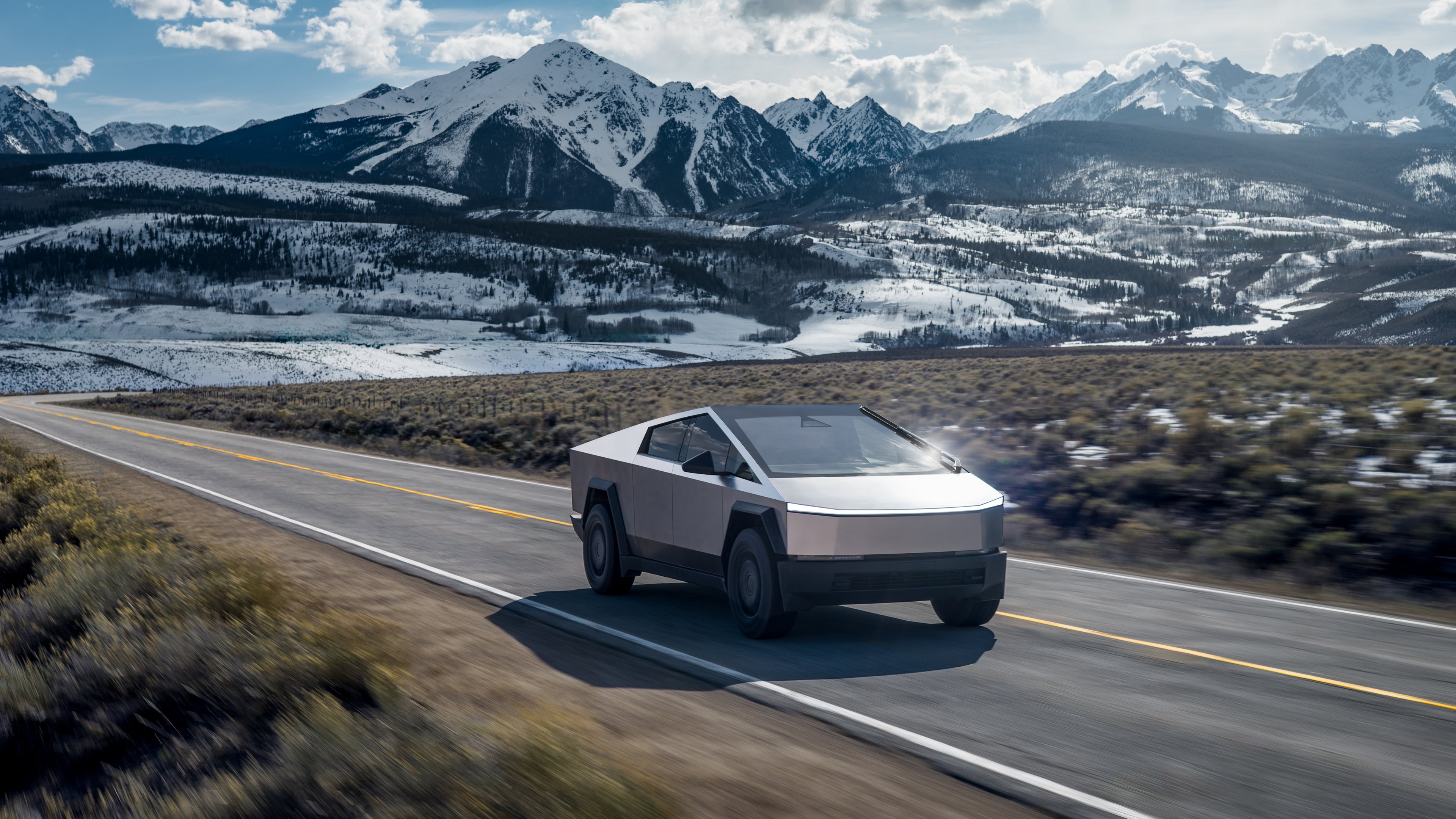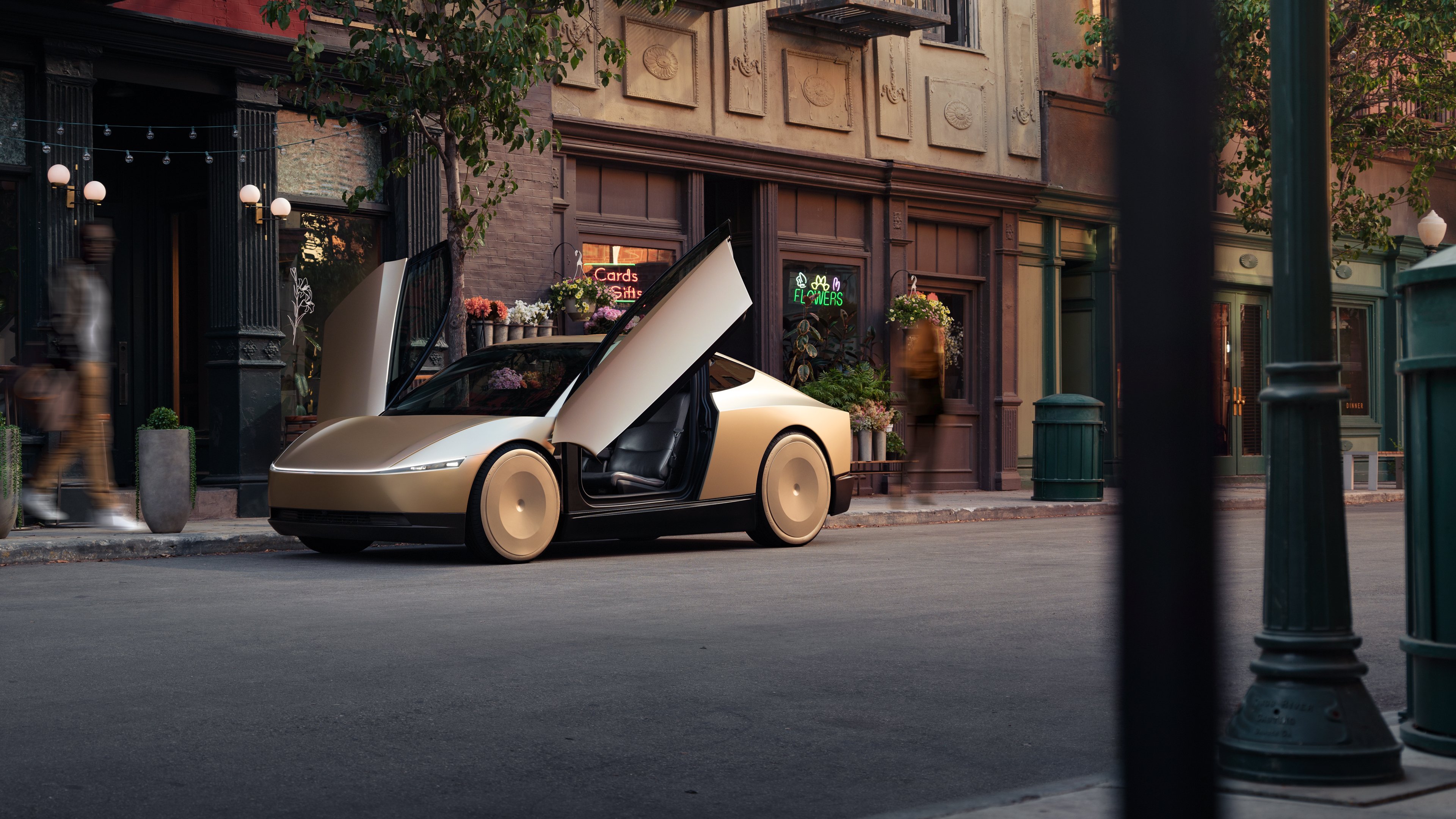
BMW i3 and connectivity app. Consumers will be able to monitor battery levels while their vehicle is charging. Image courtesy of BMW.
Tesla Motors (TSLA 0.16%) has taken the auto world by storm by developing electric cars from the ground up, and in the process creating a new category of automobile that didn't exist just a few years ago. The success of the Model S, and anticipation for the Model X, have wowed the market and rewarded investors with a 486% gain in the last year alone.
Automakers like Nissan, General Motors (GM 0.11%), and Ford (F 1.52%) have halfheartedly followed suit, creating short-range electric vehicles that are often augmented by a gasoline-hybrid power train as well. But Tesla has mastered the EV market so far.

Model S batteries are incorporated into the chassis, lowering the center of gravity of the vehicle.
Why Detroit can't compete with Tesla
While GM and Ford have demonstrated an interest to play in the EV market, they're not the players to contend with Tesla in the high-five-figure auto market. The problem is that neither of these automakers provides a performance product to match a Tesla vehicle, nor do they offer much appeal for the affluent buyers who can afford electric vehicles, which is where the market is right now.
Not only is a Tesla Model S an EV that can appeal to the most environmentally conscious consumer, it's a performance machine that stacks up against some of the best sports cars in the world -- that's the key to its success.
From a design standpoint, the big reason automakers aren't making headway against Tesla is that they aren't yet building EV chassis and drive trains from the ground up the way Tesla has done. Tesla built its batteries into the car's floor to lower the center of gravity to increase performance and save space in the cabin. Instead, competitors are jamming battery packs into the existing vehicle design.
But one company is taking a ground-up approach to EVs and it could be a big competitor to Tesla.
The one company Tesla should worry about
One company that is starting its EV design from scratch and has the ability to meet or exceed the performance of Tesla's Model S is BMW (BAMXF 6.12%). The BMW i3 has batteries integrated into the floor of the vehicle, opening up the cabin for passengers. It also incorporates carbon fiber that lowers the curb weight to just over 2,600 pounds. That's a ton less than the 4,600-pound Model S (although the i3 is a smaller vehicle).
Where BMW will be able to compete long term is in performance. Below are highlighted the performance specifications of the Model S and three BMW models: the M5 (BMW's closest conventional competitor to the Model S), i3, and i8.
|
0-60 mph |
Top Speed |
Range |
Base Cost | |
|---|---|---|---|---|
|
Tesla Model S |
5.4 seconds |
125 mph |
265 miles |
$81,070 |
|
Tesla Model S Performance |
4.2 seconds |
130 mph |
265 miles |
$94,570 |
|
BMW M5 |
3.6 seconds |
190 mph |
422 miles |
$92,900 |
|
BMW i3 |
7.2 seconds |
93 mph |
100 miles |
$41,350 |
|
BMW i8 |
4.4 seconds |
155 mph |
22 miles electric 310 miles total |
$135,700 |
Source: Tesla and BMW data sheets
You can see that the i8 stacks up well with the Model S in performance, although it isn't an all-electric vehicle. The i3 isn't quick, but it extends range further than either Ford, GM, or Nissan have done in an all-electric model. It's also priced at an attractive level for many buyers.
At the very least, BMW has created a small line of vehicles that are a viable alternative to Tesla's. Orders seem to reflect this fact: There were 10,000 orders for the i3 in place by late 2013 and BMW expects to sell out of the model this year. The i8 will be a much smaller production run, but it's also showing well with customers.

BMW i8, the high-performance EV hybrid. Image courtesy of BMW.
BMW is now Tesla's long-term rival
BMW probably isn't going to take a significant number of customers from Tesla this year or next, but what's important is that it's building a platform that will compete in the future. Look at this as the same stage of development that Tesla was at when it launched the Roadster. It's the next-generation i3 and i8 that will be the real competition because engineers will have the ability to add range and improve performance.
The reason this is important to Tesla is that BMW has the scale and balance sheet to build true competition much faster than Tesla is expanding. If the i-series sells well, and BMW makes a big bet on the future of EVs, then Tesla will have a formidable competitor on its hands -- one that could very well exceed Tesla when it comes to vehicle performance.
There's even an outside chance that BMW could produce more electrified vehicles in 2015 than Tesla, based on current projections. That has to be causing a little worry at Tesla's headquarters in Silicon Valley.









